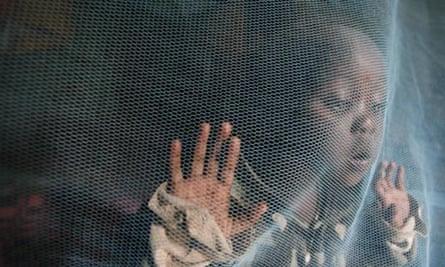
This is just as the United Nations expressed fears that the gaps in life-saving interventions are undermining efforts to curb malaria, and the COVID-19 pandemic could further set back the fight against the disease.
The World Health Organisation has warned that the disruption in access to effective anti-malaria treatment could lead to an additional 19,000 deaths in the whole of sub-Saharan Africa.
This is just as the United Nations expressed fears that the gaps in life-saving interventions are undermining efforts to curb malaria, and the COVID-19 pandemic could further set back the fight against the disease.

According to the World Malaria Report released on Monday, the situation is particularly concerning in high-burden countries in Africa.
Stressing the need for African countries to intensify efforts in combating malaria on the continent, WHO voiced concerns that even "moderate disruptions" in access to treatment could lead to a considerable loss of life.
"For instance, a 10 per cent disruption in access to effective antimalarial treatment in sub-Saharan Africa could lead to 19,000 additional deaths, while disruptions of 25-50 per cent in the region could result in an additional 46,000 and 100,000 deaths, respectively," WHO said.
According to WHO, ensuring access to malaria prevention, such as insecticide-treated nets and preventive medicines for children, also supported the response to COVID-19 by reducing the number of malaria infections and, in turn, easing the strain on health systems.
Matshidiso Moeti, WHO Regional Director for Africa, underscored the need to ensure that malaria programmes are sustained and expanded.
"COVID-19 threatens to further derail our efforts to overcome malaria, particularly treating people with the disease. Despite the devastating impact COVID-19 has had on African economies, international partners and countries need to do more to ensure that the resources are there to expand malaria programmes which are making such a difference in people's lives," she said.
The UN health agency urged nations and health partners to step up the fight against malaria, with better targeting of interventions, new tools and increased funding.
"It is time for leaders across Africa – and the world – to rise once again to the challenge of malaria, just as they did when they laid the foundation for the progress made since the beginning of this century," said WHO Director-General Tedros Adhanom Ghebreyesus.
"Through joint action, and a commitment to leaving no one behind, we can achieve our shared vision of a world free of malaria," he added.
Though preventable and curable, malaria continues to claim hundreds of thousands of lives each year. According to WHO, nearly half of the world's population is at risk of the disease, and most cases and deaths occur in sub-Saharan Africa.